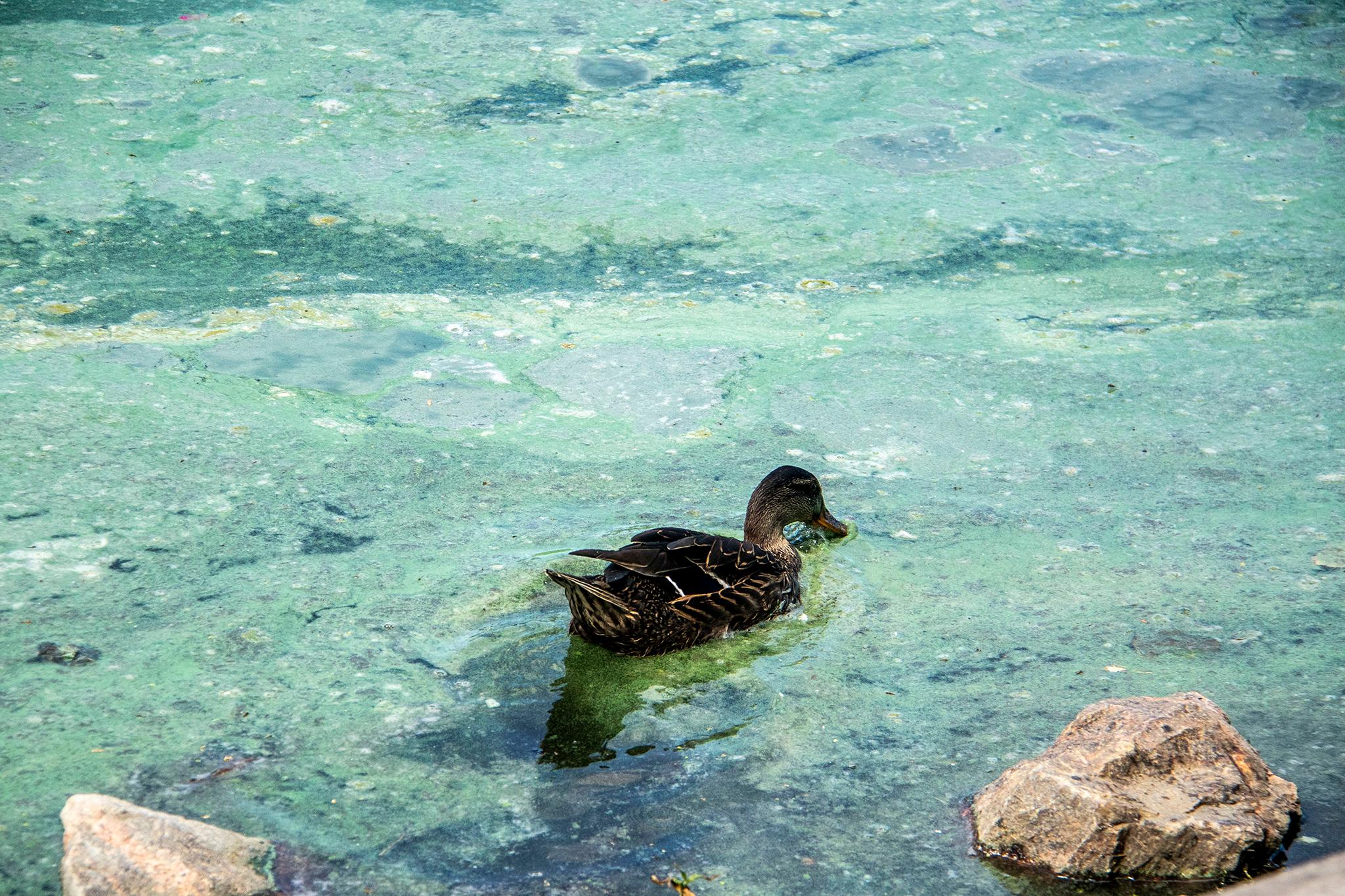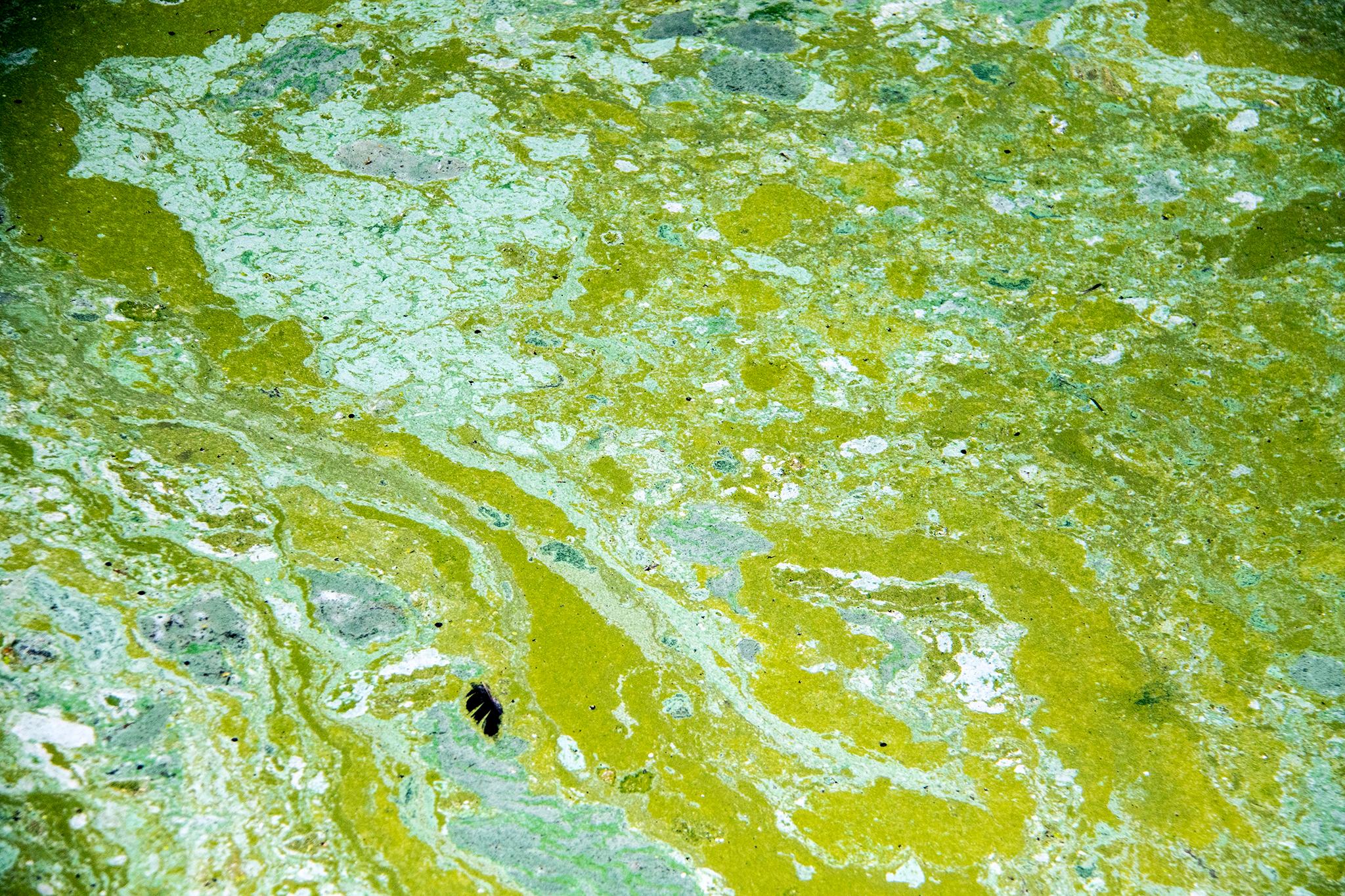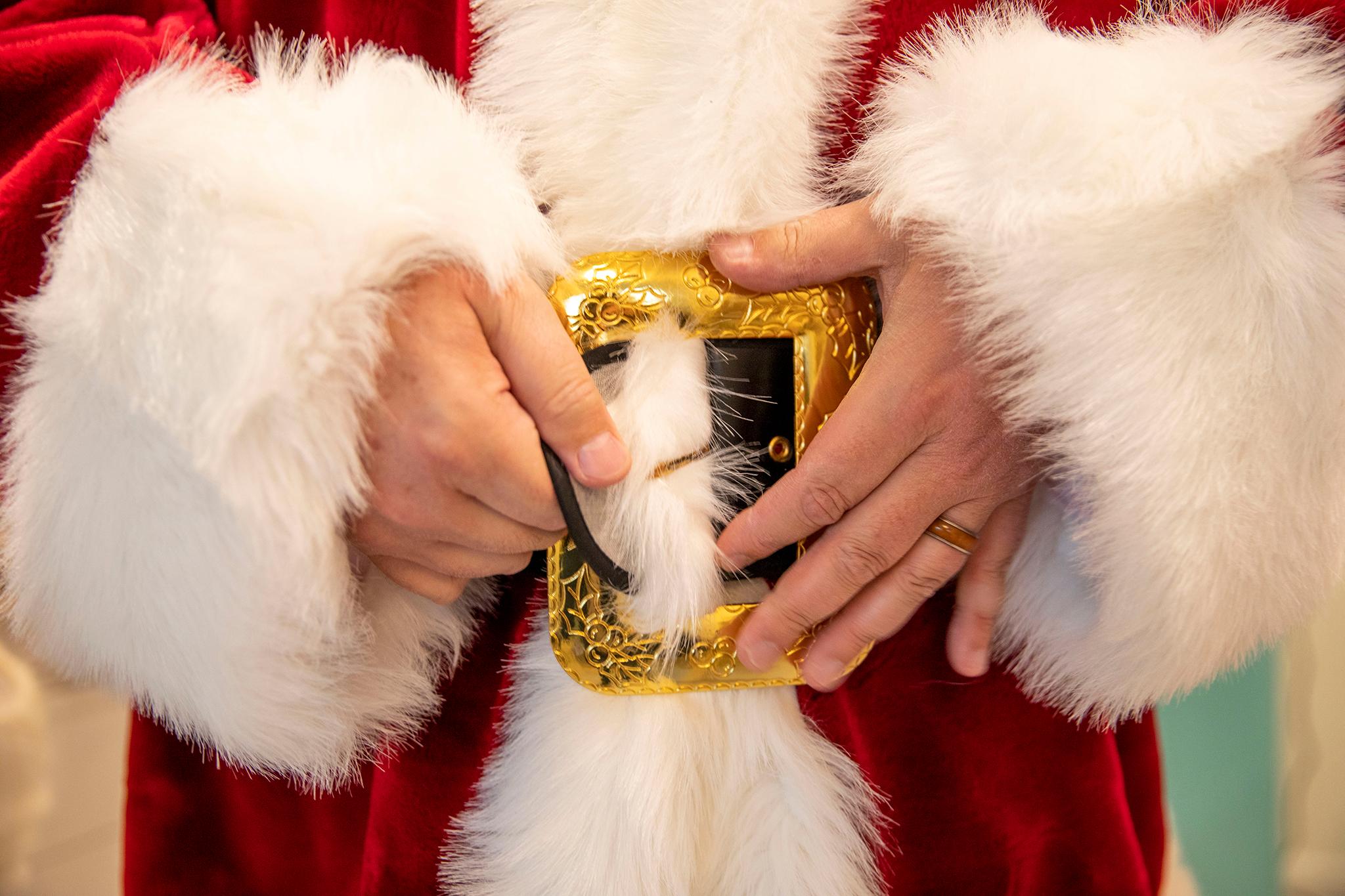City Park's Duck Lake smells bad all the time, so you're probably used to keeping yourself, your kids and your pets out of the water. But there's a very important reason to avoid it right now: a potentially toxic algae bloom.
If you've walked by the smelly bird sanctuary this week, you may have seen a sign warning against contact with the green goop. If anyone does ingest or otherwise touch it, the sign suggests calling a doctor or veterinarian.
Tammy Vigil, spokesperson for Denver's Department of Public Health and Environment, said Duck Lake is the only spot with a bloom like this for now, but you should keep your eyes out as the summer grows hotter.
"(At) this time of year, they can appear rapidly, so there is always the potential," Vigil wrote us.
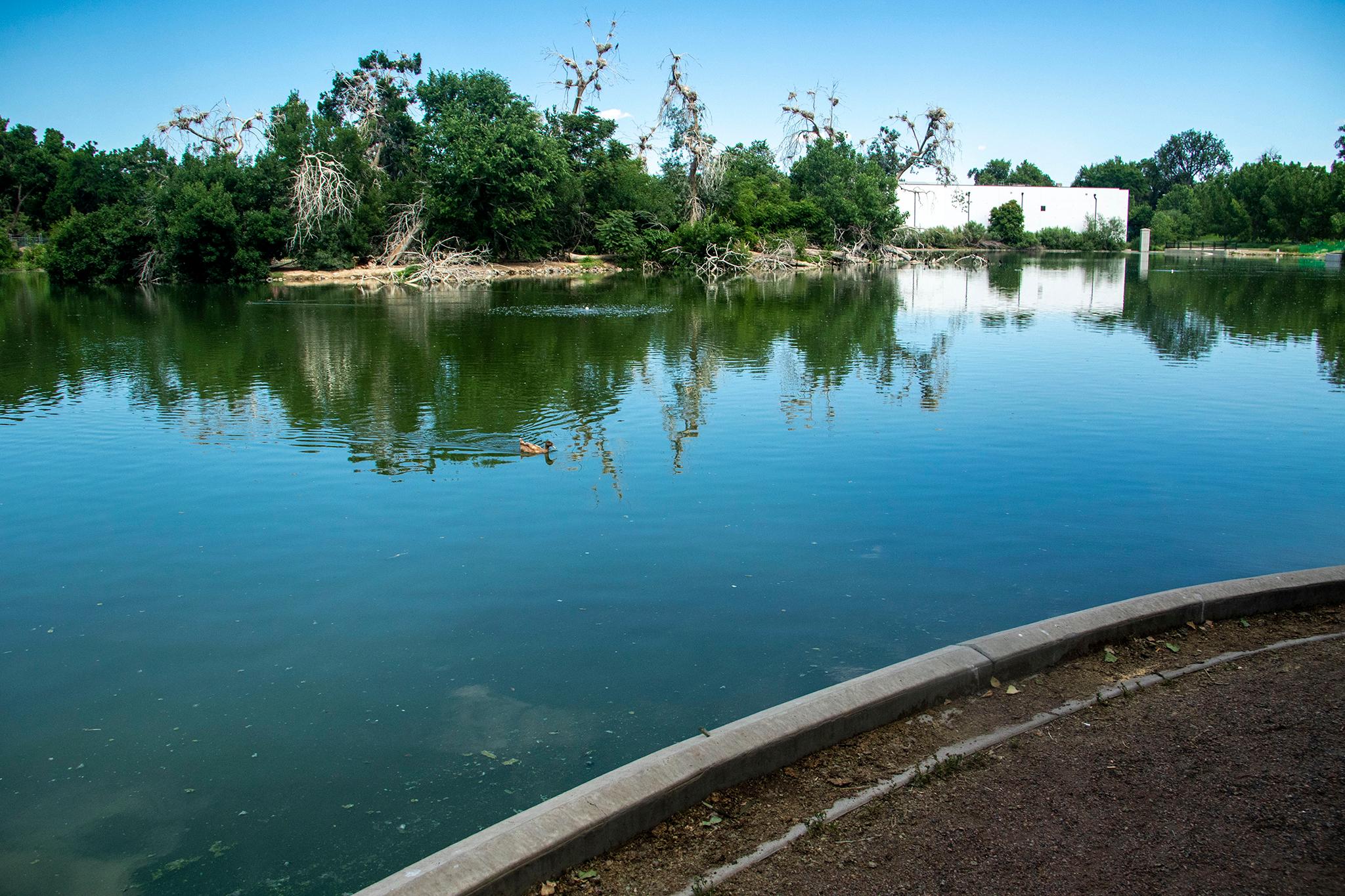
Algae thrive on warm, still water and love an abundance of carbon dioxide. Research suggests climate change is increasing the frequency and intensity of toxic blooms. In 2021, Denver closed water in a park for the first time due to an algae issue. In 2020, officials said algae likely contributed to a huge fish die-off in Sloan's Lake.
But just because a lake is green and slimy doesn't mean it's dangerous, DDPHE senior analyst Alan Polansky told us. "Green" varieties of algae are usually not a problem, while their "blue green" cousins can be fatal if ingested. Still, Polansky said you're better off exercising caution.
"When people are around any lakes, if it looks green or bad in any other way, they should consider there is potential that a blue-green algae bloom is occurring and they should stay out of it," he wrote us. "They should especially keep their kids and pets out."
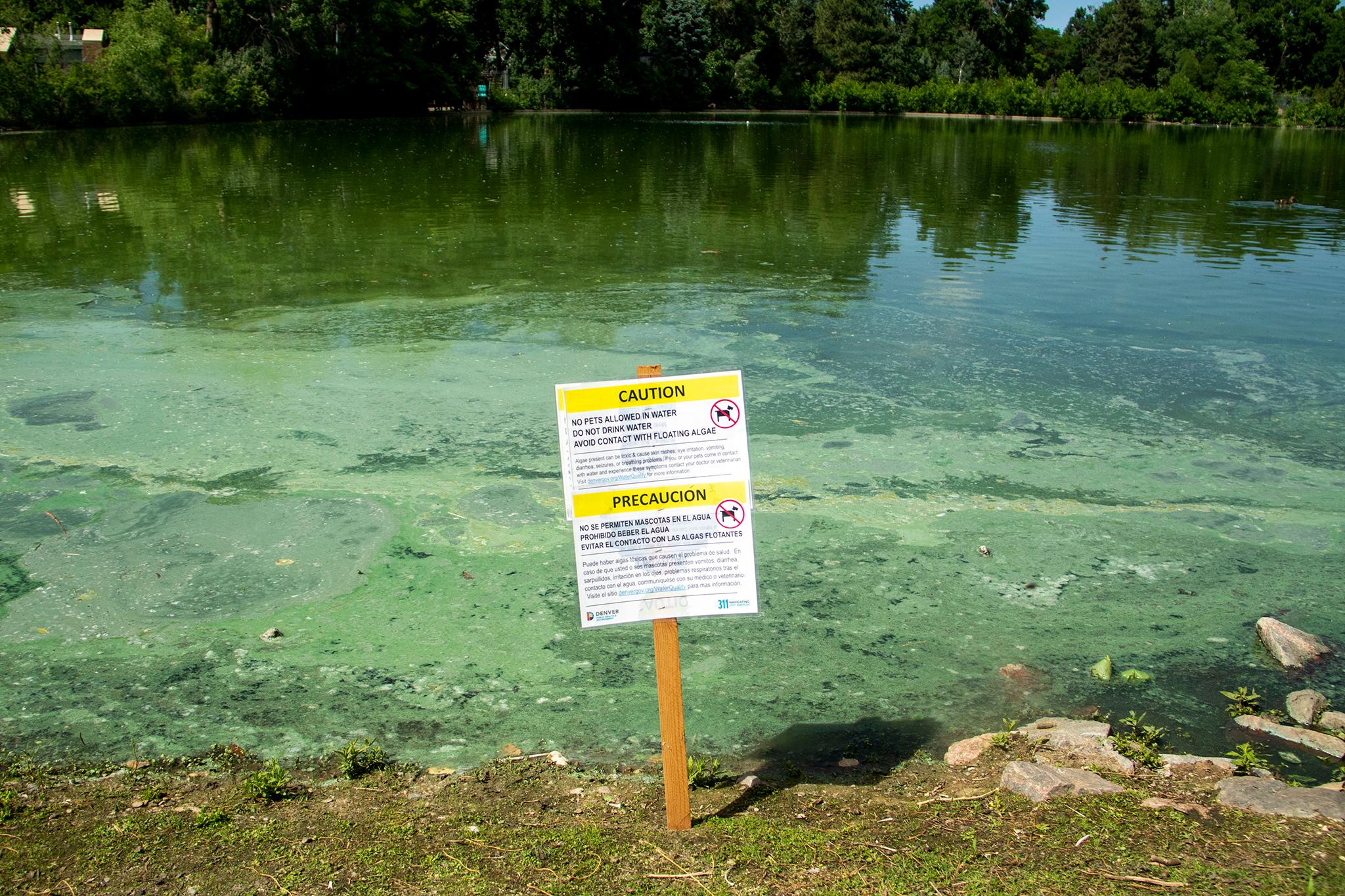
Polansky said dogs' carefree attitudes put them at greater risk to succumb to algae poisoning.
"They are more likely to consume algae and toxins by either drinking it directly, or when they clean their fur off after romping in it," he told us.
But Denver has measures that are supposed to keep this from happening in the first place. If your dog jumps in an algae-infested lake, Vigil said you may have already broken one rule: "Dogs are never allowed off-leash when not on private property."
